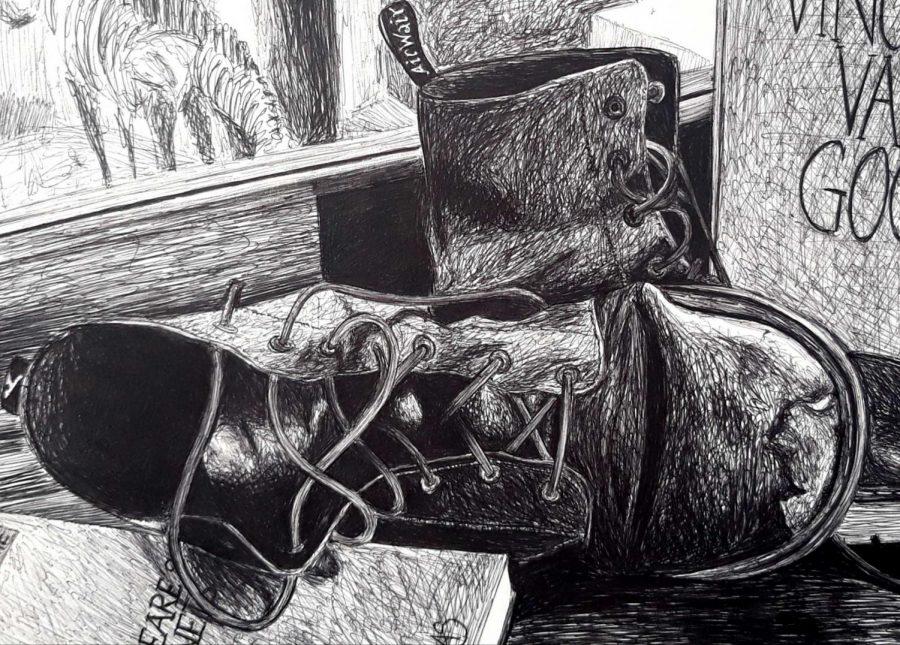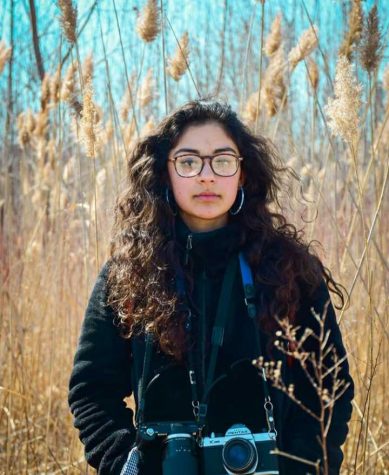Opinion | Volunteering, unpaid internships and research opportunities need to be accessible
February 16, 2021
When the COVID-19 pandemic started, I lost one of my two jobs. It left me bored, pissed off and with more free time than I had ever had before. I became more politically active than ever before and put my goals and priorities in line for what must be the first time in my life. I decided I wanted to make a difference. I am passionate about education and traveling, so I found two organizations that could help.
The first is Choose a Challenge, which takes you on a challenging trip of a lifetime — in my case trekking for 10 days across the Moroccan High Atlas Mountains — in exchange for raising a given amount of money for a charity of your choice. The second is Funds2Orgs, which donates to a charity of your choice in your name in exchange for collecting used shoes for countries in which people often go shoeless. My charity of choice is Pencils of Promise, an organization that helps build schools, train teachers and provide hygiene and sanitation services for students all over the world. Everybody deserves a quality education, and I am determined to give a part of my time to make that happen.
I had never volunteered before this pandemic, nor had I ever raised money for charity, or worked in an unpaid internship or research position. Neither I nor my parents have a high enough income to allow me to dedicate large portions of my time to things that don’t pay. In high school, while other students were out partying on weekends, I was worried about getting up at 5 a.m. for my shift at Starbucks, because I needed the money for my undergraduate career. Now that I’m in college, and was laid off from my job at Starbucks back last March, I spend my Saturdays and Sundays writing columns, making illustrations and going out in the cold to photograph things for the newspaper, because I know I’ll need the cash for grad school and for whatever life I decide to lead after that.
Our society seems to think that in order to be a good person you have to volunteer. Someone who donates their time and energy to helping people without getting paid is the ultimate example of altruism — though it might also just be someone who really wants to be able to get into their top-choice college. Volunteering, charity work, unpaid research and internships all give you boosts not only in applying to colleges but afterwards when applying for jobs. The experience you get from volunteering or an unpaid internship or research position gives you chances to make connections and gain practical knowledge that many other students miss out on.
It is clear that volunteering, internships and research give everyone a leg up in both careers and education. These experiences need to be accessible to all people of all incomes so we can level the playing field for those who are falling behind. These organizations cannot operate or help people to the fullest extent without gigantic numbers of people working for them to perform the labor. In internships and research, people are needed to run out and get coffee, crunch numbers, do outreach and the work that higher-ups don’t want to do. Volunteering is a matter of sheer numbers — the more of them, the better.
I plan to go into psychology, a field in which unpaid research or internships are often the ticket into a lifetime of world-improving research. Those unpaid internships and research projects often require just as much time as a part-time job, and I get nothing in return except for college credit, which I am paying tuition to get anyway. I need to work so that I have money for now, as well as for my future.
Every student should be able to have those opportunities to make those connections, and have those experiences without sacrificing their income. People who participate in volunteer work are 27% more likely to get a job after being unemployed than people who don’t volunteer. If a student is in a field like mine, research is essential for getting into graduate school and getting a job afterward. Students without an internship in college receive 16% fewer job offers than those who have at least one.
The inaccessibility of these positions and volunteering has an easy fix. Make them paid, or at the very least provide assistance to those who do not have an income to spare but still want to help. Sure, we won’t be able to brag about how altruistic we are, but more people will be able to help even more people, and that’s what matters most.
When organizing my shoe drive, I wondered how I was going to fit bags full of hundreds of pairs of shoes into my tiny Squirrel Hill apartment which is already jam-packed with myself and my family inside it. The website recommended buying a storage unit when I do not have a dime to spare. I wondered how I was going to get the bags of shoes from one place to another without a car. I wondered how I was going to get the word out that I needed to collect hundreds of pairs of shoes for charity. I started thinking of neighborhood organizations that had a much larger reach than I did such as the Jewish Community Center — the hub of Squirrel Hill. But because I do not have enough money to purchase a membership, my shoe drive will never see the light of day on the JCC newsletter.
I wondered if it was worth it to walk 6 miles to Hillman library from my house in the snow to print 250 fliers, so I could use my University printing quota instead of having to pay out of pocket to go to FedEx a block from my house. I wondered how many newspaper assignments I would have to miss out on because I was going door to door with those fliers, and was dedicating every Saturday of my February to collecting shoes and donations. These are obstacles that people with money to spare will never have to face.
The answer to my predicament is simple — just don’t do it. Don’t raise money for children who desperately need an education. Don’t collect hundreds of pairs of shoes for people who don’t have any. Let the rich be the only ones who can make a difference and help people. It is much easier to not do something than it is to do something. I never expected my volunteering experience to be easy, and it shouldn’t be! But at the very least it should be accessible for a college student living in a tiny house with a job that barely pays to be able to just do something good for once.
Dalia Maeroff writes primarily about issues of psychology, education, culture and environmentalism. Write to her at DAM291@pitt.edu.




